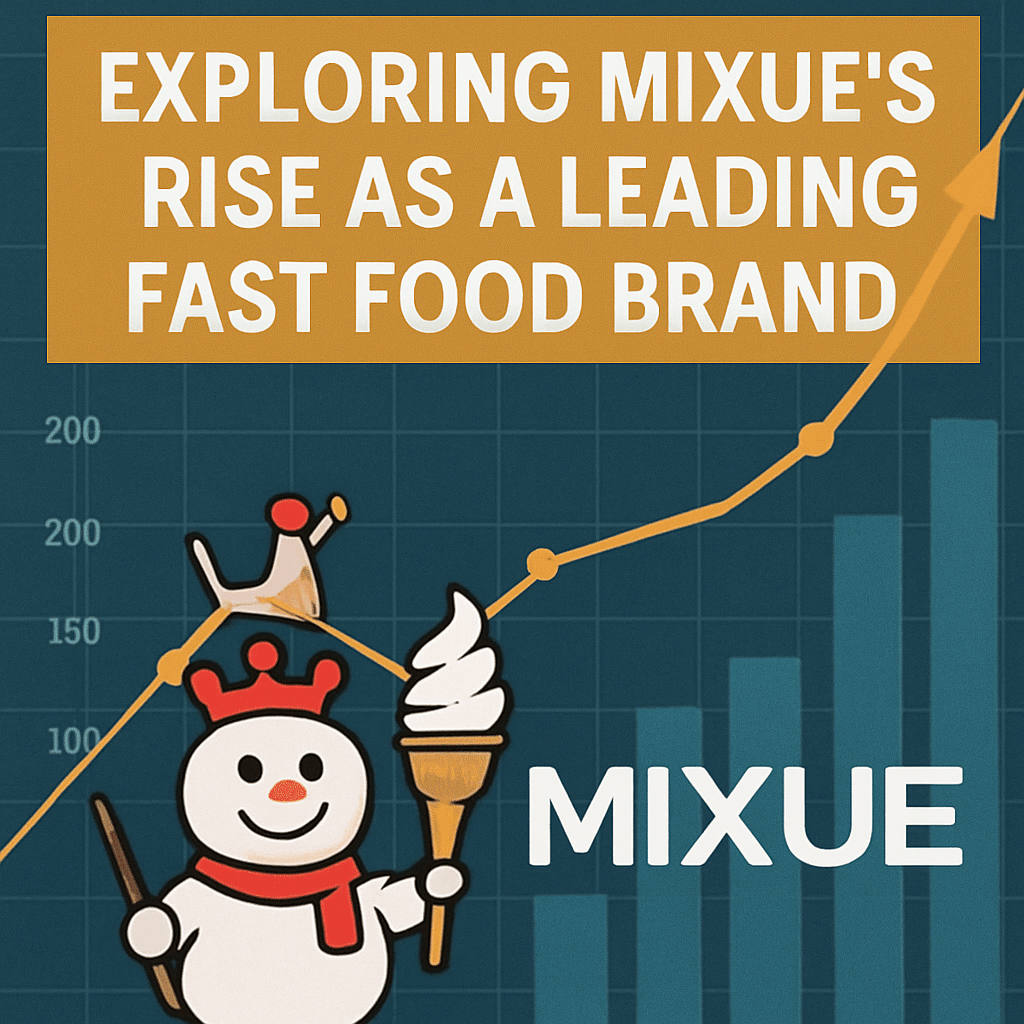Exploring Mixue’s Rise as a Leading Fast-Food Brand

It may surprise you to learn that the world’s largest fast-food chain isn’t an American staple like McDonald’s or Starbucks. It’s actually Mixue, an ice cream and boba shop founded in 1997 that has rapidly increased its popularity in China and throughout Asia. Zhang Hongchao, a university student at the time of its inception, created the first Mixue stall, which has now evolved into a billion-dollar enterprise.
Understanding the Landscape
McDonald’s, a titan of fast food, was founded 85 years ago in San Bernardino, California, and has grown to become the world’s second-largest private employer, just behind Walmart. McDonald’s boasts over 40,000 locations globally, yet it still falls short of the sheer number of outlets managed by Mixue Ice Cream & Tea, which as of March this year counts over 46,000 locations across Asia, Australia, the Middle East, and South America.
- Over 40,000 locations are based in mainland China, indicating substantial untapped potential for international expansion.
- After its debut on Hong Kong’s stock exchange in March, Mixue’s stock saw a significant increase, rising from an opening price of $290 HKD per share to $584.50 HKD by early October 2023.
From Humble Beginnings to Billion-Dollar Brand
Zhang Hongchao probably didn’t envision the scale of success Mixue would achieve when he opened up a street-food stall nearly three decades ago with borrowed funds from his grandmother. Initially, he focused on selling beverages like cold drinks and shaved ice from a small stall in Zhengzhou, a major international transport hub.
With an initial investment of 3,000 yuan (approximately $362 back in 1997, now about $417), Zhang’s stall showed immediate signs of potential. Incredibly, he managed to sell drinks costing about 1.5 yuan for over 100 yuan, establishing a sustainable profit model despite setbacks.
The Challenges of Urban Expansion
However, Zhang’s journey was not without challenges. The rapid modernization of Zhengzhou often resulted in his stall being demolished multiple times in a single year, forcing him to adapt quickly. For instance, cold treats were not as appealing during winter months, compelling him to pivot to selling mandarin oranges for additional income.
Innovations and Growing Pains
Despite these hurdles, Zhang persisted. He upgraded equipment, diversified the menu, and introduced an affordable soft-serve ice cream cone for just 1 yuan (roughly 14 cents), which resonated with budget-conscious consumers and cemented Mixue’s brand identity.
- In 2007, Zhang brought his younger brother, Hongfu, onboard to help manage operations. This strategic move was imperative, as many early franchisees were family or friends who lacked a formal structure.
- Hongfu implemented more stringent operational protocols, including the introduction of dedicated store managers, which helped navigate conflicts that arose with franchisees.
Improved Business Practices
Over time, Mixue faced challenges concerning product quality and supply chain consistency. The shortage of raw materials such as fruits and milk powder often disrupted service. By establishing a dedicated storage base in 2014 to manage supply chain logistics, the company consolidated its operations significantly. This included sourcing directly from farmers and producing proprietary ingredients.
As of 2024, Mixue has established logistics bases in 22 provinces throughout China, improving its operational efficiency and quality control and thereby enhancing franchise success rates. The company has adopted a vertically integrated business model, managing everything from site selection and decoration to training and food safety.
Financial Overview and Growth Projections
In its latest report for 2024, Mixue recorded 4.4 billion yuan (approximately $615 million) in profit, marking a 22% increase year-over-year, on revenues totaling 24.8 billion yuan (about $3.43 billion)—a remarkable near-40% jump compared to the previous year. Mixue’s earnings per share rose by 41% to 12.3 yuan ($1.71).
Notably, its cost structure remains a competitive advantage, with operating costs pegged at just 30% of sales revenue compared to the industry average of 45-55% as highlighted in a study from the Journal of Fintech and Business Analysis.
Continued Expansion and Future Outlook
Mixue continues to expand aggressively, adding 4,192 new franchises in 2024 and opening more than 10,000 new stores. The company’s closure rate remains remarkably low at just 3.5%, indicating robust franchisee support and market acceptance.
Franchise revenues are supplemented primarily by sales of proprietary merchandise and equipment — an innovative approach that ensures a steady income stream beyond traditional franchise fees. This strategy allows Mixue to maintain tight control over brand quality and customer experience.
Recent Milestones and Leadership Dynamics
Early in 2023, Mixue celebrated a landmark initial public offering (IPO), the largest on the Hong Kong Stock Exchange for the year, raising approximately $3.45 billion HKD (around $444 million). This influx of capital positions Mixue for further growth and allows investment in supply chain enhancements.
Zhang Hongchao and Hongfu Zhang maintain a relatively low public profile, but their combined net worth is estimated at $8.1 billion, underscoring the financial success of their venture.
Conclusion
As Mixue continues to carve its niche in the global fast-food market, its growth trajectory and operational strategies could serve as a template for emerging franchises in developing markets. While well-established brands like McDonald’s and Starbucks dominate in terms of legacy and brand recognition, Mixue’s innovative approach and strategic expansions represent a new frontier in the fast-food industry.
Key Takeaway: The dynamic shift in consumer preferences towards quick-service, affordable food options, particularly in Asia, has positioned Mixue strategically for prolonged success.